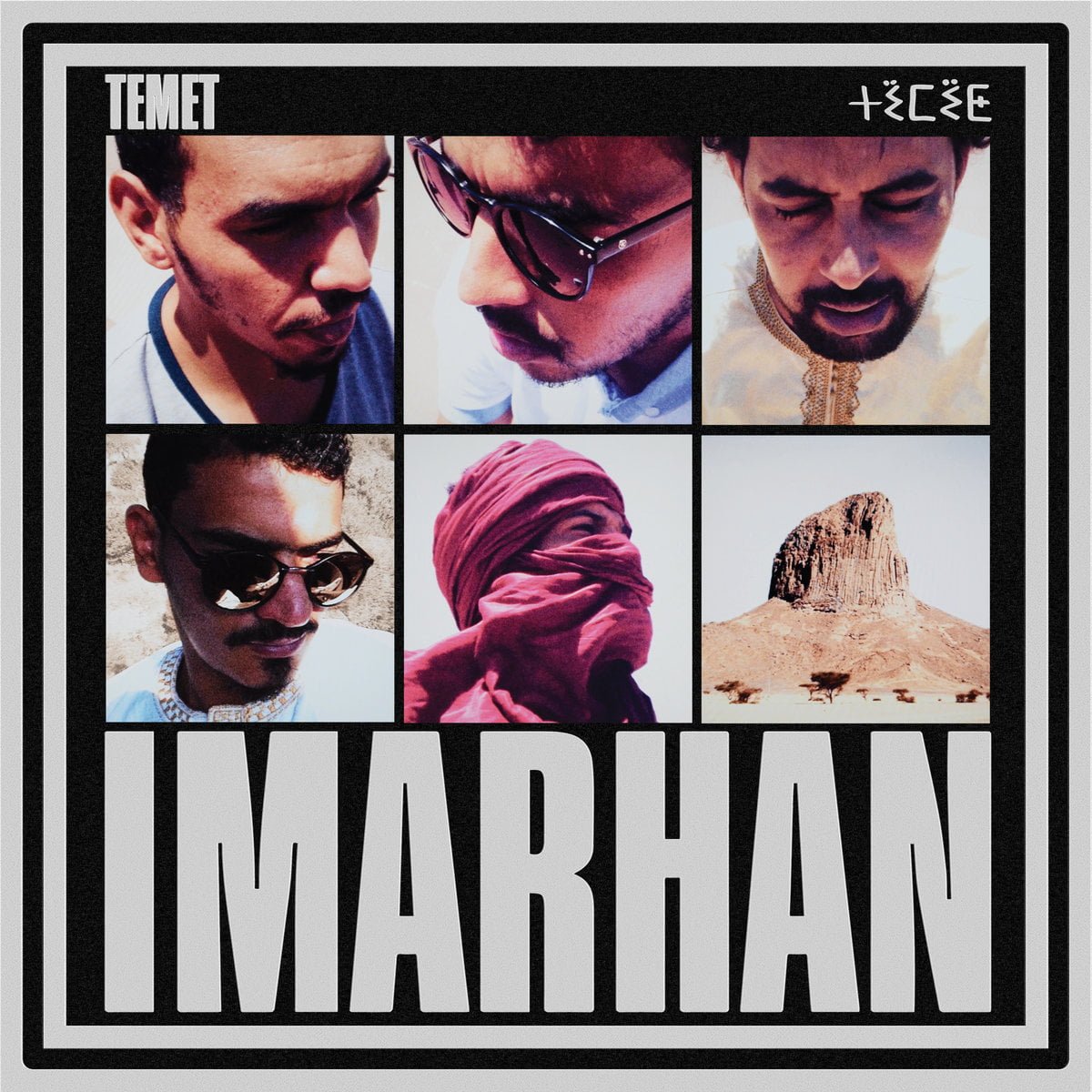Imarhan are a five-piece Tuareg band from Tamanrasset, the Southern Algerian part of the Sahara desert that covers much of North Africa. Their second album Temet is released by the same label as their successful debut – City Slang. Temet was self-produced in Paris, with the help of genre pioneers Tinariwen. The title of their second album, ‘Temet’, means ‘connections’ in Tamasheq – the Tuareg language. Imarhan say: “it is an energetic call for unity to the Tuareg community”, which is currently facing political and cultural hardship.
The album opens with the song “Azzaman”, which has an accompanying video shot in the capital of Algeria – Algiers. It has retro 1980s videogame-esque typography and the aesthetics create a nostalgic atmosphere of culture, food, architecture, and traditions. The video and the song both reflect the amalgamation of traditional Tuareg cultures with the contemporary globalised present. Azzaman opens with roaring guitar licks, plucked in a specifically Tuareg style, with Tuareg clapping and a catchy male-female chorus. We are also treated to a genre-defying funky, almost wah-wah-like note-bending guitar solo. This perhaps reflects the message of the song: to grow with the urban cultural environment whilst preserving Tuareg traditions.
In a sense, Imarhan have linked nostalgia throughout the entire album: we have reflections of the traditional mixing with the new and contemporary. “Ehad wa Dagh” has cyclical electric guitar riffs ending with a trio of claps. It’s catchy, energetic and dance-inducing, almost disco. ‘Tumast’ opens with a funky baseline riff, shortly to be accompanied by driving rhythms and that signature crackling guitar cyclically riding throughout. I can imagine this song playing at dance events and being capable of raising any dance floor.
In contrast, the album still has slow melodic odes to the desert: “Tochal”, for example, has a soft, slow build up; meanwhile “Zinizjumegh” features a traditional lute instrument, which sounds similar to a kologo, coupled with soft male vocals over the top. The album ends with soundscapes of the Saharan desert on “Ma S-Abok”. It is reminiscent of the musical and geographical beginnings of the band and their full circle through, blues, rock, funk, and disco.
This album is fun, upbeat, uplifting….and completely Tuareg!


